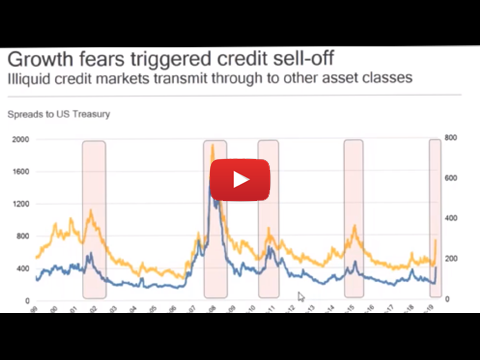A sharp shock to earnings created by China’s action to combat the impact of the Coronavirus and to help manage the capacity of its health system, has created the current investment environment with markets falling sharply as they recognise the need to replicate this across the world.
“There has been an unprecedented impact on China over the past two months,” explained Crispin Murray, Head of Equity Strategies, Pendal Group. “We are watching carefully how quickly China can dial the economy up which is very dependent on the virus not coming back.”
February 20 this year, markets were at a high, up 26% over the previous 14 months.
“A big driver of the change was the rating or valuation increase,” said Crispin. “Bond yields fell and stocks got re-rated. Resources were more conservatively priced.”
Since this date, markets have been in unprecedented decline, unwinding all and more of the 14-month market rally with the anticipation of earnings declining as the economy slows seeing share prices falling 30%.
The impact on credit markets is in line with where they were at in 2011 but are not at GFC rates. Murray said while you could build a bearish case for credit to dry up, he believes policy-makers globally will take aggressive action to prevent this from happening.
“Policy-makers recognise this situation is no-one’s fault. It is not an industry or a banking system misallocating capital. This is a health issue and the government is being forced to take action and companies and jobs will be suffering the fallout.”
The first wave of stocks to be hit have been travel and tourism including companies such as Flight Centre and The Star Entertainment group which have been impacted by weak customer demand.
Meanwhile companies with leveraged balance sheets have been hit as investors raise questions over whether they can ride out the impacts of a downturn, while companies such as NAB and Computershare have been impacted by the flow on effects from cuts in interest rates.
Stocks holding up in this environment include defensive stocks such as Coles, healthcare stocks and producers of premium products like A2 milk.
Murray observes that given the lack of understanding of the virus, there are a wide range of potential outcomes, the impact of which depend on the duration of the containment measures. Optimising the health outcome has come at the expense of the economy and containment has been effective but at a significant cost. The market is now pricing a significant downturn, but not an extended one, the key for the market to recover is the effectiveness of policy action, such as interest rates and fiscal stimulus to soften the blow and provide more certainty. “Further, it has not yet been demonstrated that economies can return to normal without CV-19 re-occurring,” said Murray.
Given this, economic policy is needed to help plug the gap, with interest rates set to stay lower for longer, the Federal Reserve in the US to add liquidity and undertake asset purchases to prevent the dislocation of markets and significant fiscal stimulus is needed with limited lags.
Did you miss our Webinar?
Pendal Group’s Head of Equity Strategies Crispin Murray presents on the recent reporting season, explaining what shaped the performance of various stocks and sectors and its impact on the year ahead.





